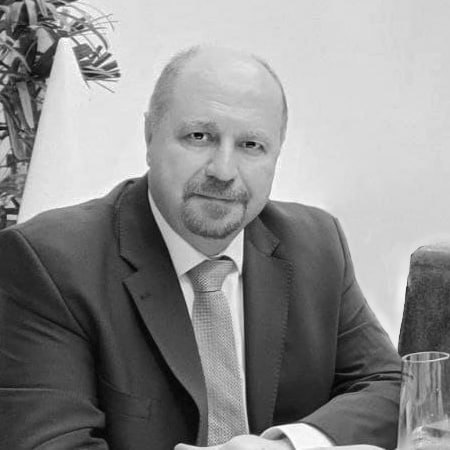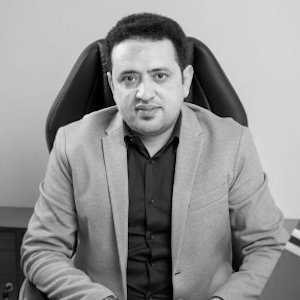10 Changes and Trends That Will Guide Portugal’s Immigration Sector in 2024
Sara Sousa Rebolo
Miguel Cruz Silva
Lisbon
After a year of strong emotions, with successive aversions of the end of the Golden Visa program, the surprising announcement of the Non-Habitual Tax Residents (NHR) program end, the long-awaited restructuring of immigration services, and even the fall of the Government that approved all these changes, where suspense was the keyword, we expect 2024 to be a calmer year in the investment migration industry in Portugal – not!
The continuity of the Golden Visa Program and the NHR itself (though with significant changes), combined with the country’s natural characteristics and the international political and social context, Portugal continues to be a haven for investors, entrepreneurs, retirees, and, in general, for foreign families looking for a second home in Europe.
With that in mind, we’ll risk predicting that 2024 will be guided by the following changes and trends:
1. Delays, Legal Proceedings, and Administrative Deferrals
It is impossible to speak about the future of the immigration sector without mentioning the role of the SEF, many of whose tasks have now fallen to a new agency: AIMA. The Immigration Office was restructured and the name has changed, but the problems remain:
- The agency has about 700,000 pending files and applications, and with the heightened awareness of Portugal as a destination among many nationalities, we expect the continued filing of large volumes of applications in 2024.
- AIMA, the new agency, has “officialized” the problem and has said it will try its best to resolve the pending files by the end of 2024. Don’t bet on it.
- Investors have been stuck in limbo for way too long. We are talking about years despite the law mandating a maximum waiting period of three months. Many investors are running out of patience and have taken the matter to court to try and obtain their appointments to proceed with their applications.
If, on the one hand, it is true that the majority of the investors have so far won their legal actions and the courts have forced the Agency to grant their appointments, it is also true that, as of today, there is a lack of jurisprudence: Four judges in the same court are making different decisions, so a positive decision is not guaranteed.
Last but not least, and to mitigate the problems caused by the delays on all sorts of appointments, the Portuguese Government experimented in 2023 with automatic renewals for investors’ residency permits. This measure may return in 2024 to fast-track the process, together with the already known measure of validity extension of the visas until mid-2024.
2. Updating of Fees, New Internal Interpretations, and Tsunamis of Notifications
It is normal to have an annual update on the taxes charged by the Public Administration and in the fees charged by the providers due to inflation. In October 2023, the administrative taxes charged by the Government were already updated to the following values:
- Standard Residence Applications:
- Processing fee: €121.95
- Temporary Residency card issuance fee: €104.82
- Permanent Residency card issuance fee €322.27
- Golden Visa Residence applications:
- Processing fee: €773.74
- Temporary Residency card issuance fee: €7,730.11
- Permanent Residency card issuance fee: €10,822.14
The significant difference between the so-called “standard” residences and the “golden” ones continues, justified by the fact that the golden visa program only requires a stay of 7 days/year (and therefore a more punctual contribution to the economy), as opposed to the standard residences which, as a general rule, require their holder to stay for at least six months in the national territory (and consequently the creation of potential tax obligations and continuous contributions). In this way, the State intends to balance the fact that both residences allow access to the Portuguese social, educational, labor and health system.
Due to the legislative changes introduced and the successive extensions of its entry into force, there was once again a wave of applications that naturally clogged the services and, therefore, several processes were submitted in an incomplete manner. As a consequence, there will be regularization work via notifications to the legal representatives.
As it is a new service, it is also possible that the Internal Procedures Manual will be updated and new recommendations will be adopted for harmonization and greater efficiency in the analysis and administrative processing of the applications submitted at the national level.
3. Legislative Stagnation until Summer
Due to the fall of the Portuguese Government and new elections taking place only in March, we will not have an active Government until sometime in the spring. This, of course, will have implications for the legislative capabilities of the outgoing Government, as the capabilities of the current Government are restricted to only the essential actions and, given that, they cannot legislate unless it is something urgent or mandatory.
As such, we do not expect to have the regulations of the new law published, which can create a vacuum at the Immigration Services regarding the novelties introduced in the law last October, especially regarding renewals and how to prove the absence of real estate investments in the new investments made.
This does not mean that new applications cannot be submitted. On the contrary, it means that the investments allowed are defined, but during the processing of the application, if such regulations emerge, AIMA may request additional documents or details.

4. Openness to Culture
The end of the real estate investment options for the golden visa, both directly and indirectly, shifted the perspective of the investors in Portugal and consequently the players in the market had to shift their attention to other areas. And that’s where the cultural options of investment came into play.
Although the option to qualify for a golden visa through cultural projects has been around for years, it was never properly explored. The cultural sector is currently benefitting from a lot of attention and we foresee that it will continue as it is the cheapest qualifying option, starting at EUR 200,000.
Although, right now, only donation options are certified to receive Golden Visa applicants under the cultural option, several players are preparing real and very innovative investment options, which we expect them to release to the market in the coming months.
It is also important to note that this option was the only option that had, during the legislative process, a “safe pass”, remaining secured throughout each round of amendments. It is a sector that the political decision-makers want to give attention to because of the lack of investment in previous decades. Evidence of this is observable from the creation of a new governmental entity to develop this area.
In addition, the country is rich in culture and, with such an extensive history, Portugal has plenty of options and opportunities to develop this sector, so be on the lookout for changes, news, and opportunities in this sector.
5. (Unfair) Competition between Collective Investment Entities (VC Funds)
Following the legislative changes that eliminated the eligibility of any type of investment related to real estate, investment funds became – to date – the most attractive investment option for investors, resuming a trend that stems back to 2019.
The changes introduced are subtle but important.
On the one hand, the range of qualifying entities was expanded from investment funds/venture capital to the concept of “collective investment organizations,” thus including the possibility of investing in a collective investment company.
On the other hand, the prohibition of direct or indirect investments in real estate limited the existing options as many funds were investing in companies that developed real estate projects or property exploration.
Facing this new reality, the market took advantage of the last months of 2023 to adapt and prepare new products that we can divide into three categories:
- Those that remain faithful to the capitalization activity of companies in the most different sectors (agriculture, start-ups, health, football, etc.);
- Those that restructured their investments for the operation of activities that have a real estate asset as a base (tourism, student residences, senior residences, gyms, etc.); and
- The denialists restructured their activity but maintained in their offer (more or less visibly) a real estate component.
Given the lack of regulation of the new law, the increasing cross-referencing of information between immigration services and the securities market supervisory entity (CMVM), as well as the necessary competitive nature of the market, it is important to proceed with caution. This holds true whether we are talking about structuring products or in their selection by the investor, thus increasing the importance of the legal advisor's role in assessing the eligibility of the investment options.
No matter how attractive the commercial offer may be, it is important to keep in mind the limits imposed by the new law, the fair impetus to defend the market by traditional players, and the harmful effects that excessively “original” offers may cause in this market and in the Golden Visa program itself, in the medium term.
6. Real Estate will always be Real Estate
Following the well-known housing crisis in Portugal, it’s important to understand what the future holds for this matter. There is still a lot to be unpacked: Although the Government tried to give an impulse with the “Mais Habitação" package with measures to promote the rental market, be it through tax benefits to the landlords or through the forced rental and limitation to short rental activities, the lack of affordable houses is still a long way from resolved.
Demand for real estate in Portugal continues to be very high, and prices in the main cities are still considered too expensive for the Portuguese population.
One other important thing to talk about is the real estate scene and how it is affected by the Golden Visa. Although, supposedly, real estate is no longer an option, either direct or indirectly, it is also a matter of common knowledge that it is still in the picture – either through SPVs, agreements in third-countries, or through side deals.
There may be a case for the next Government, should it so desire, to further regulate this area, or for the regulatory entities to start cross-checking their information so that everything becomes clearer than it is now.
There is still a lot of development to come in this area. Considering the flexibilization of the licensing process, there is a unique opportunity for developers to create real estate projects for rental and affordable housing, as well as for second homes, which are a consequence of the attractiveness of Portugal to foreign investors, who will continue to look for real estate opportunities as a complement of their Golden Visa investment, now without any kind of values or geographic restrictions.
7. Repackaging of D Visas
While cultural investment options under the EUR 200,000 ticket are not approved, the market tends to rebrand traditional programs for niche markets that are not available to make investments of EUR 500,000. We are speaking about the D2 for entrepreneurs, D7 for passive income holders, or the D8 for digital nomads.
This means creating packages that include the immigration process and the additional steps that underpin it: Company incorporation, provision of services/labor contracts, family relocation with school enrolment, and real estate aquisition, and even emerging concepts such as the Angel Visa, the Green Visa, or the HQA Visa.
All options are valid and legitimate as long as they are adapted to the applicant's situation. As such, it is important to consult a qualified provider to understand exactly what are the timings, costs, tax impacts, rights, and duties associated with each option to avoid surprises and frustrations.
Since COVID, the Portuguese immigration system has been quite flexible, given the inability of services to respond to the high demand, which was overcome by automatic extensions of documents' validities, non-applicability of fines, and administrative deferrals. However, the market must prepare itself for a "reestablishment of the legal order" and the end of facilitation with new entities (and a new Government) in office.
8. Two for One
The concept of second residencies (RBI) or second citizenships (CBI) is increasingly consolidated as a familiar product. This trend arises from different factors:
- The volatility resulting from geopolitical tensions (as a result of international sanctions, directives restricting the movement of capital from certain countries, and the increase in military interventions);
- The internationalization of businesses and academic careers;
- Family dispersion;
- The growing supply of means of travel;
- The new mentality of a willingness to enjoy retirement in a sunnier country or experiencing cultural exchange;
- Concern with succession planning and tax optimization or even with having a “safe place” in the face of political or social instability.
Without European or international harmonization (for now), there is a growing tendency to create residency/citizenship packages, meaning an expansion of the geographical offer of programs by the advisors, which allows not only the reduction of exposure to internal legislative risk to such advisors but also to respond to the applicant's needs.
These packages combine different programs, European and non-European, such as the EB-5 in the United States, the EPRP in the Bahamas, the FIP in South Africa, the Entrepass in Singapore, or BIIP Investor in Australia, allowing the different procedures and requirements to be combined to optimize and personalize the ideal solution for the applicant and its family.
Being in a relational situation with an impact on several jurisdictions, it is natural that candidates look for advisors who have the capacity to offer multi-faceted advice in a centralized and cost-effective way, thus leading to a trend toward globalization of immigration services through the creation of networks or local delegations to advise the applicants who appreciate a one-stop shop service.
9. Anything Can Happen: Vote Right or Left?
The fall of the Portuguese Government made echoes all around the globe – understandable given how everything played out and the situation itself. However, if that’s in the past, the future also looks uncertain with regard to the maintenance or cancelation of the recently adopted measures. Portugal will elect the next Government on March 10th, and we are yet to know the official program and position of the parties regarding investor migration.
What we know is that the left, led by Pedro Nuno Santos and the Socialist Party, during the legislative process, there were different internal positions regarding the maintenance of the golden visa program and real estate investment.
On the right, led by Luis Montenegro and PSD, they defended the program and the maintenance of the real estate investment options in the interior and islands, even declaring that, if elected, they would fully reverse the measures adopted in October. Will the left and right change their positions in the search for more votes?
The winner will have the responsibility of leading the country during an internationally sensitive situation, a critical time in terms of AML and immigration policies to adopt, and important decisions regarding what projects to benefit with the use of European Funds for the Resilience Plan. All of this creates a big opportunity for all market actors and investors.
10. Game over for immigration to Portugal?
Not at all.
Portugal continues to provide 300 sunny days per year, 800km of coastline, world-leading gastronomy, safety, interesting opportunities for business development and second homes, as well as a diverse set of immigration programs, where the Golden Visa Program remains a force to be reckoned with thanks to the following options of investment:
- The creation of at least 10 jobs (8 in low-density areas);
- Capital transfer of at least EUR 500,000 applied to research activities carried out by public or private institutions of scientific research, integrated into the national scientific and technological system (EUR 400,000 in low-density areas);
- Capital transfer of at least EUR 250,000, applied to investment or support to artistic production, or recovery or maintenance of the national cultural heritage through qualified public entities or private foundations with public utility status (EUR 200,0000 in low-density areas);
- Transfer of capital of at least EUR 500,000, intended for the acquisition of shares in non-real estate collective investment entities, which are incorporated under Portuguese legislation, whose maturity, at the time of investment, is at least five years and that keep at least 60% of the value of investments materialized in companies headquartered in Portugal;
- Transfer of capital of at least EUR 500,000, intended for the incorporation of a company with headquarters in Portugal, combined with the creation of 5 permanent jobs, or to reinforce the social capital of a company headquartered in Portugal, already incorporated, with the creation of at least at least 5 permanent jobs or maintenance of at least 10 job positions, with a minimum of five permanent employees, and for a minimum period of three years.
Also, NHR as we know it (10 years tax exemption on foreign income) will receive applications until 31.12.2024 (provided that the applicants had already met the eligibility requirements in 2023), and a new NHR will be in force for new residents with income that results from:
- Careers of higher education teachers and scientific research;
- Qualified jobs within the scope of contractual benefits for productive investment of the Investment Tax Code (start-ups);
- Jobs recognized by the Agency for Investment and Foreign Trade of Portugal (AICEP) or by IAPMEI – Agency for Competitiveness and Innovation, as relevant to the national economy, particularly for attracting productive investment;
- Jobs or other activities, when carried out by tax residents in the islands of the Azores and Madeira.
2024 in Portugal will mean new challenges but also new opportunities.
IMI Pros who can help with Portuguese residency
Sara Sousa Rebolo is a Portuguese Immigration Lawyer and Partner at Caiado Guerreiro and President of PAIIR – Portuguese Association of Immigration, Investment and Relocation. Sara has a master in legal and financial sciences and has also completed post-graduate studies in real estate, immigration, and economy and management for businesses, as well as, specializations in investment migration, Portuguese citizenship law and investment funds. Sara is the author of several articles for international publications, with a recent contribution to a Brazilian collection on the migratory perspective in heritage and succession planning and has been twice awarded as international top 25 immigration attorney.























































































